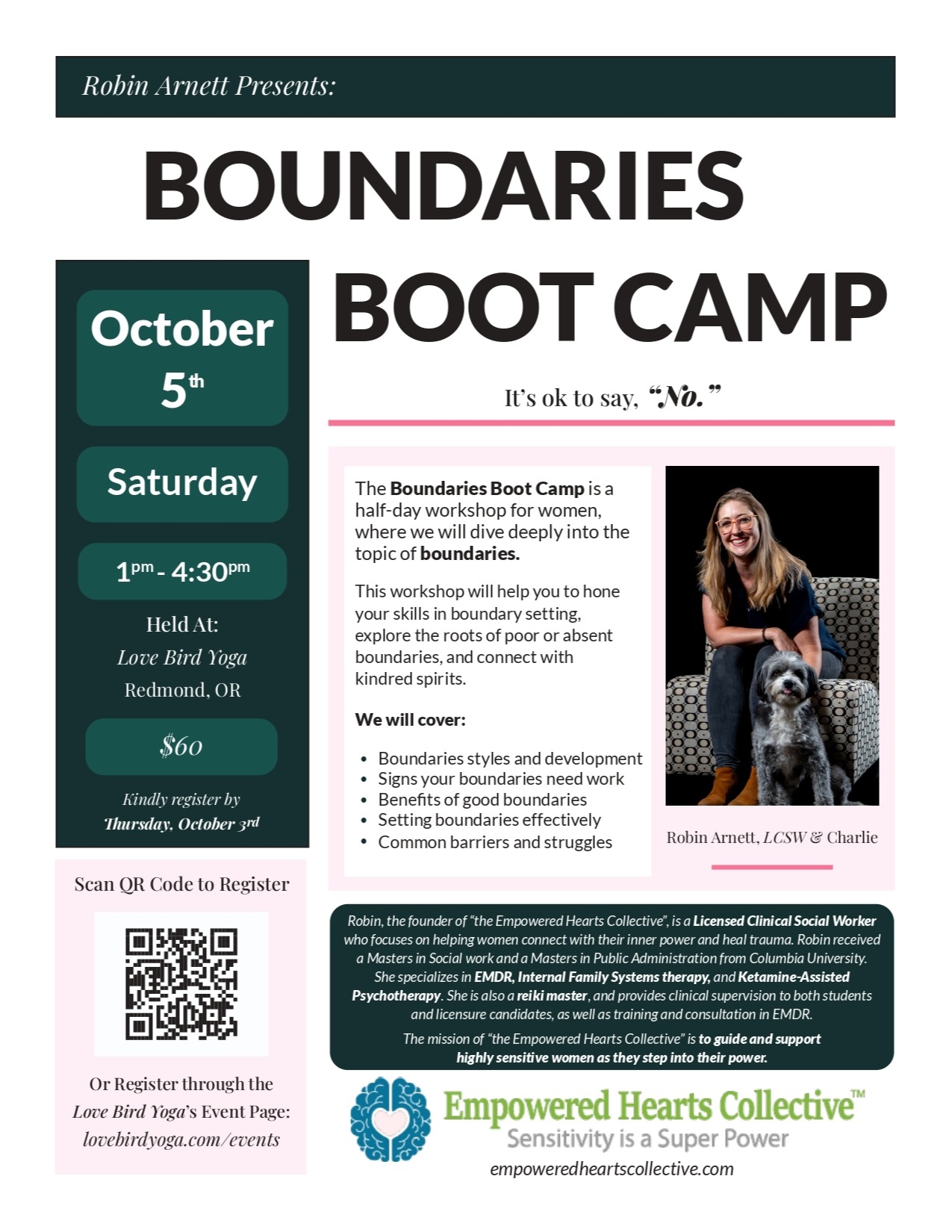Take the first step to stronger boundaries—unlock your free course, Module 7: Setting Effective Boundaries, from the Intuitive Boundaries Mastery Series.
Unlock Free ModuleKetamine-Assisted Psychotherapy 101
A Powerful Psychedelic Medicine for Lasting Healing and Growth
By Robin Arnett
In the last 5-10 years, ketamine has been gaining attention as an effective treatment for depression, anxiety, and PTSD. This powerful medicine is at the cutting edge of psychedelic psychotherapy, but many who are interested may find themselves dealing with a number of questions and misconceptions. Here are the answers to some of the most common questions about KAP to help you feel more informed on your healing journey.
What is ketamine, and how does it work?
Ketamine is a dissociative anesthetic (aka a substance that reduces sensitivity to pain) commonly used in surgery, as well as an analgesic (aka a drug that is used to relieve pain). In addition to these uses, ketamine has gained traction in recent years as a psychedelic medicine and a treatment for depression.
Scientifically speaking, ketamine works by blocking the brain’s NMDA receptors as well as by stimulating AMPA receptors. What this means in practice is that ketamine facilitates the formation of new synaptic connections and boosts neural circuits that regulate stress and mood. Ketamine also has the effect of enhancing overall neuroplasticity, which is the key to its lasting effects.
What is Ketamine-Assisted Psychotherapy (KAP)?
KAP refers to the process of ketamine dosing, followed by integration of the experience under the care of a licensed mental health professional.
What is "integration," and why is it so important?
Integration is essential to making the experience of taking ketamine beneficial. The post-ketamine window of neuroplasticity is the perfect time to engage in healing therapeutic approaches of all kinds, and is an opportunity to develop new habits and ways of thinking. A trained mental health professional will help to guide the process of making meaning of the experience.
How does KAP work?
Ketamine has the effect of increasing a neurotransmitter in the brain that leads to heightened neuroplasticity. In other words, ketamine creates the opportunity to develop new ways of thinking and behaving, and provides a window for overcoming mental and emotional barriers and blocks. It often acts as a heart opener, moving past internal “protectors” to allow for access to greater vulnerability, and thus profound healing.
Is ketamine safe?
Ketamine is used widely as a medical anesthetic, and is even used on infants. Side effects from ketamine are generally mild and short lived. There is a growing body of clinical evidence to support ketamine’s safety and efficacy in a psychotherapeutic setting.
I partner with a company called Journey Clinical for prescribing and dosing. Their medical team will do an extensive intake to determine eligibility, and are careful to flag any medical or psychiatric conditions of concern. When necessary, they will seek medical clearances from other providers. Journey Clinical also has an extensive set of safety protocols, which includes 24/7 access to their medical team.
Is ketamine legal?
Yes. Ketamine has been FDA approved for anesthesia and analgesia since 1970, and as a mental health treatment since 2019. Ketamine is currently listed on the World Health Organization's essential medications list.
Is KAP effective?
KAP is highly evidence-based, and has been shown to be beneficial as a treatment for a wide range of issues and with a diverse group of clients. KAP is effectively used as a treatment for depression, anxiety, PTSD, and substance abuse, among other concerns.
Who is a good candidate for KAP?
KAP is appropriate for a wide range of diagnoses, including treatment-resistant depression, PTSD, and anxiety, but it is also appropriate for folks seeking a different perspective, or who have been feeling stuck in thought and behavior patterns that don’t necessarily merit a diagnosis. KAP is especially helpful for those who have reached a point where they are not progressing in their current mental health approach.
What will KAP feel like?
Ketamine is generally considered a “gentler” psychedelic than others like ayahuasca, peyote, and psilocybin. Movement and speech are inhibited, and it is typical to feel a shift in perception which can include a feeling of being apart from the body. Patients often experience visuals, insights, and shifts in perception that lead to clarity and new points of view.


